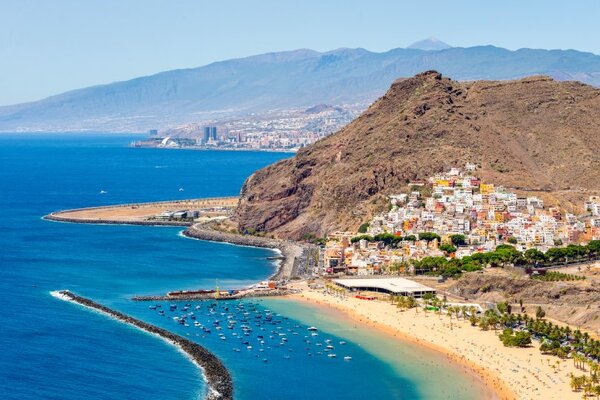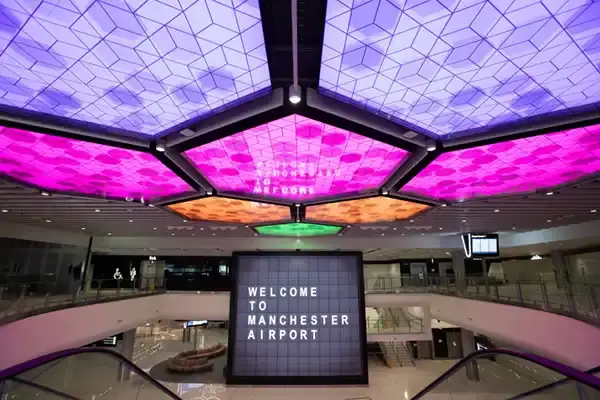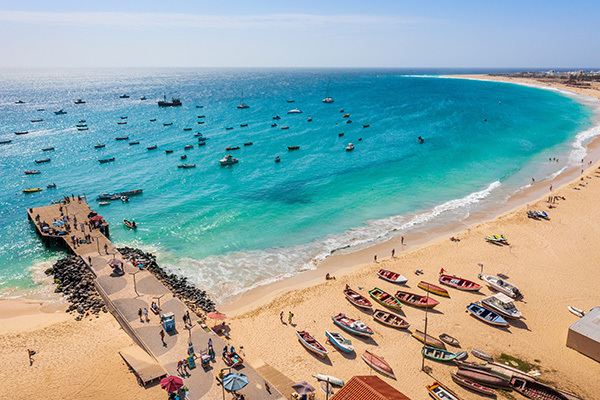The end of travel as we know it? How the climate crisis could change holiday habits forever
 Harry Kemble
Harry KembleIntrepid Travel expects there to be annual limitations imposed on travel by 2040 and for a string of emerging destinations to come to the fore as the impact of climate change becomes more prevalent.
The predictions were outlined in the B Corp-certified tour operator’s report – titled “A Sustainable Future for Travel” – released on Wednesday (4 October), in partnership with foresight agency, The Future Laboratory.
The report highlights how personal carbon allowances could help curb emissions and lower travel’s overall footprint.
Experts suggest individuals should currently limit their carbon emissions to 2.3 tons each year – the equivalent of taking a round-trip flight from Rio de Janeiro to Riyadh. However, the average carbon footprint in the UK is currently 11.7 tons.
Intrepid said: “This is in stark contrast to where we may find ourselves in the future, with 2040’s travellers forced to forgo the horizon-expanding experiences so readily embraced by today’s tourists.”
It added artificial intelligence would drive real-time carbon tracking platforms, ensuring carbon labelling will become the “norm”.

Intrepid also predicts Belgium, Slovenia and Poland could be seen as alternative destinations to southern Europe.
“Traditional summer trips to the Mediterranean and forested areas of countries such as Australia and Canada will be reconsidered due to wildfires,” Intrepid explained. “This changing reality will necessitate new summer destinations, where the weather is cooler.”
Intrepid suggests parts of Scandinavia and the Baltic, including Norway’s Fjord coast, Iceland’s Akureyri and Northern Ostrobothnia in Finland, will be the go-to destinations of the future.
Intrepid said travel would become social-led, rather than product-led, as travellers focus more on forging “deeper human connections”.
This year, the operator has introduced 100 new indigenous-focused trips and continued investing in recruiting more female leaders in destinations such as Morocco and India.
Planning tools will list the most sustainable travel options and travel hubs will be reshaped to make them more environmentally friendly, said Intrepid.
Super-fast trains with sleeper pods will help negate the need for air travel and reduce emissions.
Intrepid added that if there is a lack of action to reverse the effects of climate change then “many of the world’s favourite destinations will be forced to go virtual”.
People turned to armchair travel during the pandemic when tourism boards drummed up interest in destinations with 360-degree videos.
Without action on climate change, holiday destinations will become less tourist friendly and these types of virtual activities will enter the mainstream.

Darrell Wade, co-founder and chairman of Intrepid Travel, warned that the climate crisis should not be viewed as “competitive advantage”.
He said: "The direct, catastrophic impact of climate change has for too long been viewed as something distant in the future.
“But this is no longer an impending event; it’s happening now. Tourism must evolve and become regenerative, as the current model is unsustainable.
“We must recognise that the future needs to be different from business as usual. The clock is ticking for our planet and the future of the travel and tourism industry.”
He added: “There is limited time left and immediate collective action and innovation is needed to de-carbonise travel together and truly achieve the immense potential for sustainable development within our industry."
Sign up for weekday travel news and analysis straight to your inbox

Harry Kemble
Supplier Directory
Find contacts for 260+ travel suppliers. Type name, company or destination.

















